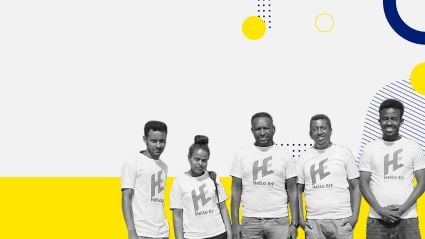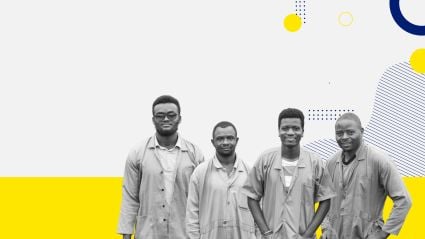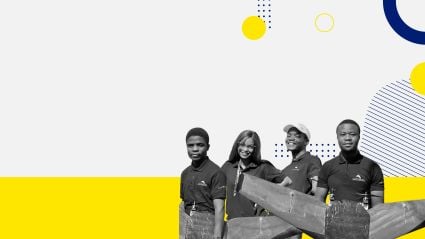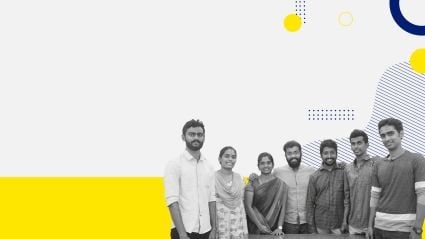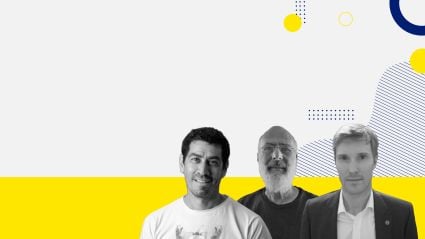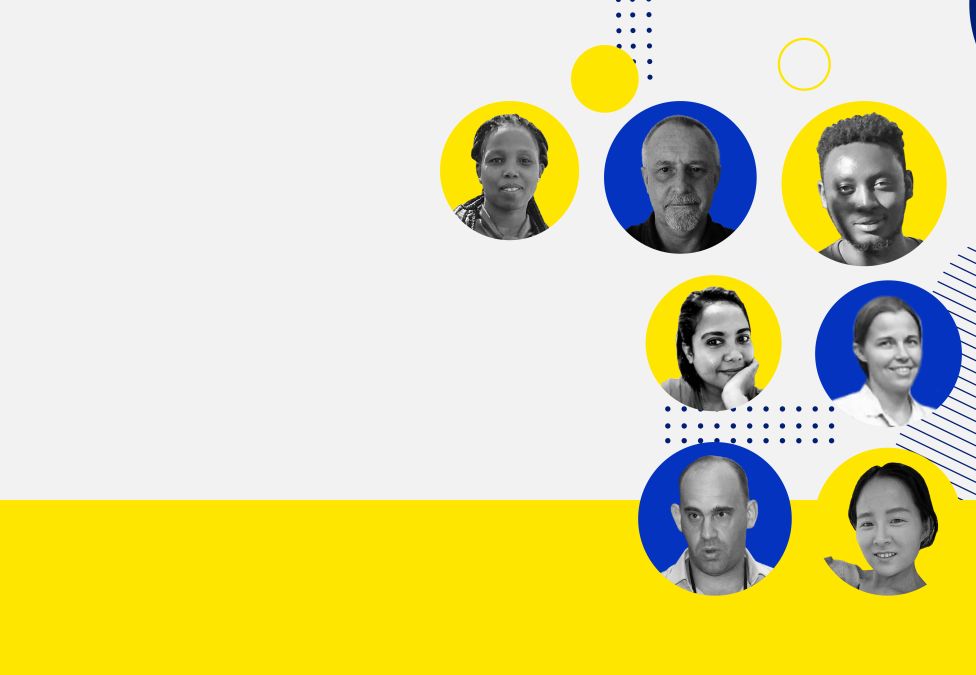
Pictured top row: Daisy Chelangat Soi, Greg Denn, Harison Nguru; middle row: Jetty Arlenda Maro, Sarah Hobgen; bottom row: Stewart Craine, Vina Hong.
Milken Institute: Please tell us about your team and why you are passionate about AgriTech.
Sarah Hobgen: The Village Infrastructure Angels team is a diverse group of individuals from different backgrounds who have followed different paths to come to the same conclusion: For rural communities to develop in a way that benefits everyone, we have to focus on productive uses of electricity to relieve the domestic and agricultural labor burden. As long as rural women are spending hours a day on manual labor for processing food and animal feed, hand washing clothes, collecting firewood, and cooking on a fire, their potential for developing income-earning opportunities and trialing new crops and methods will remain severely limited. Reducing the manual agricultural and domestic burden using micro-infrastructure solutions is key to unlocking the potential for rural farming communities.
What inspired you to participate in the Milken-Motsepe Prize in AgriTech? What do you hope to gain from this experience?
We love the Milken-Motsepe team approach and the focus on real-world trials and objective assessments of the technologies. The $1 million grand prize is great motivation and would give us the opportunity to take it to the next level, but the mentoring approach really means we have already gained great insight and capacity from the process. The Village Infrastructure Angels (VIA) team has worked on a lot of rural electrification projects using basic rice and corn mills adapted for the purpose, but this is our first experience in creating and proving the AgriTech that has been the missing link for our electrification projects. It’s really exciting to design the product based on our real-world experience, and we can’t wait to get the mills in the field to test!
Briefly describe your concept and how it will increase economic value to farmers in Africa.
Mighty Motor is a solar-powered multi-crop Agricultural Milling System providing rural off-grid communities with user-pays access to solar-powered agricultural mills, reducing manual workloads and enabling value-adding to crops. It is the first agricultural mill on the market to process multiple crops using our unique attachment system, just like a kitchen food processor. Designed specifically for last-mile communities, our mills help women to make better use of their time and create new products from their produce. Our mills are equipped with IOT technology to enable real-time monitoring of use and reporting of problems, improve our understanding of how the mill is used, reduce response times for repairs, and enable pay-as-you-go connectivity.
What sets you apart from other teams in the competition?
VIA has always been a rural electrification company, with projects in Vanuatu, Honduras, Indonesia, and Papua New Guinea and team members with experience in Nepal, Nigeria, Kenya, and Uganda. We combined solar lighting with solar-powered mills, but we found the mills in the market were only geared to one crop, while the small-scale farmers we were working with produced different crops throughout the year. A mill with multiple attachments for one solar system, battery, and motor was the missing link in our projects. We decided the communities need it, no one else is providing it, why not put all our knowledge together and do it ourselves!
Harison lives in a rural farming community near Nairobi. He loves the project so much he is keen to test it in his own community first. Harison has worked with many organizations to understand the community demand for electricity and productive uses and is keen to test the mill attachments and think outside the box for other potential uses like pellets of chicken feed and grated cassava cakes.
Stewart grew up in a rural farming community in Australia, and his first job was designing microhydro projects in Nepal. Working with the rural farmers there really changed the whole trajectory of his life. The past 20 years, he has been focused on practical, affordable micro-infrastructure solutions for rural farming families, including living and working in Vanuatu and Slovakia.
Sarah has lived in Sumba, rural Indonesia for the past 15 years. Living, working, and marrying into rural indigenous farming communities, Sarah has experienced first-hand the challenges that face women in rural communities, from grinding corn between two stones, collecting firewood, carting water, and cooking on an open fire, all with a child on their back and one following patiently behind. This experience has ignited a passion for appropriate and sustainable technology that makes rural women’s daily lives easier and reduces inequality between genders and between urban and rural communities. She can’t wait to get her hands on one of the multi-attachment mills!
Jetty was born and raised in Sumba, Indonesia, only leaving for university to train as an electrical engineer. Jetty is the only female electrical engineer working in Sumba now, and she is determined to create opportunities for rural communities to have sustainable, affordable access to electricity while showing other girls that being an engineer is not just a “boys’ job.”
Greg and Vina lived in Hong Kong for many years and have recently relocated themselves and their business to Nairobi, Kenya, to pursue their dream of making quality agricultural technology affordable to local communities.
